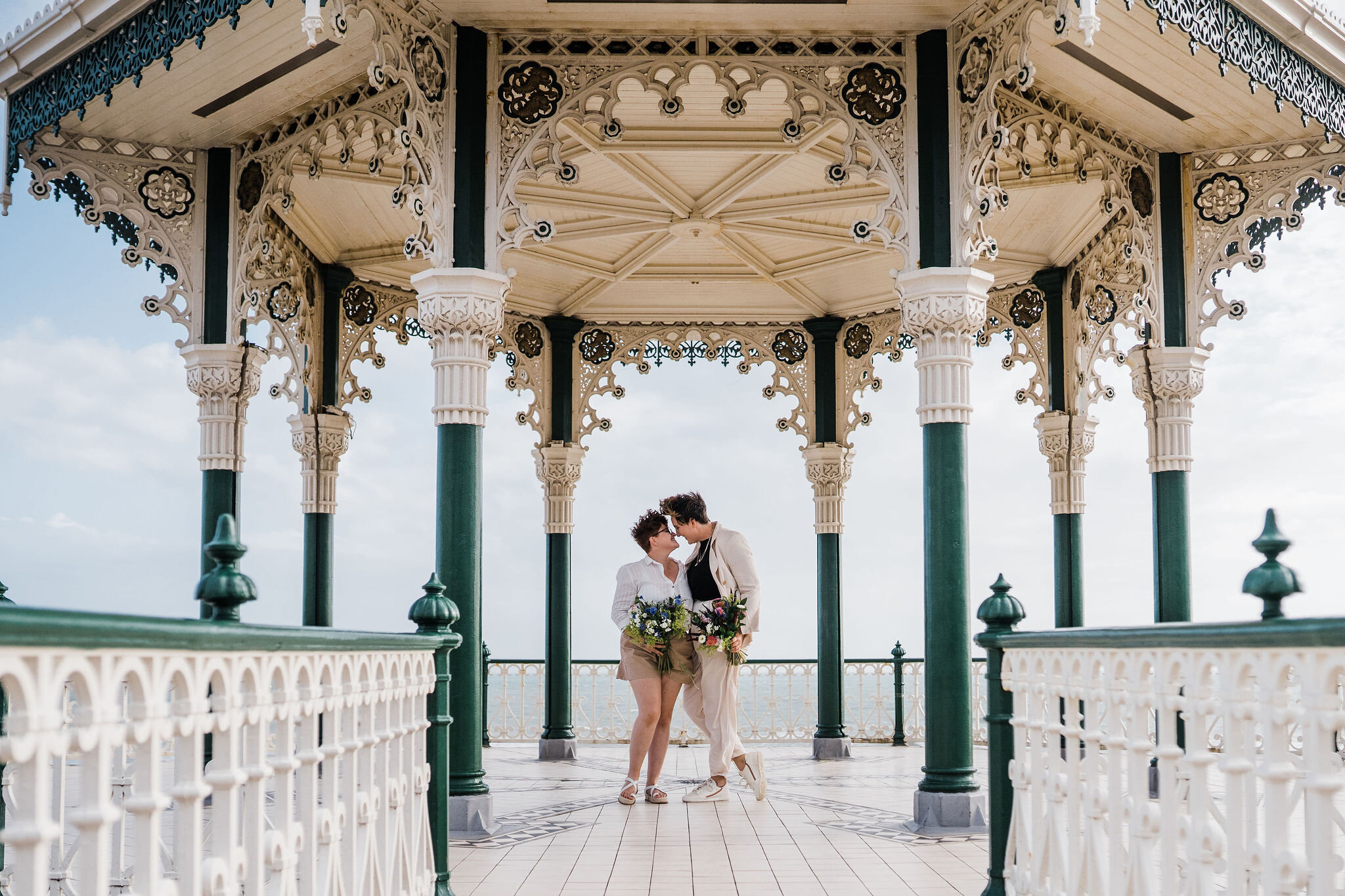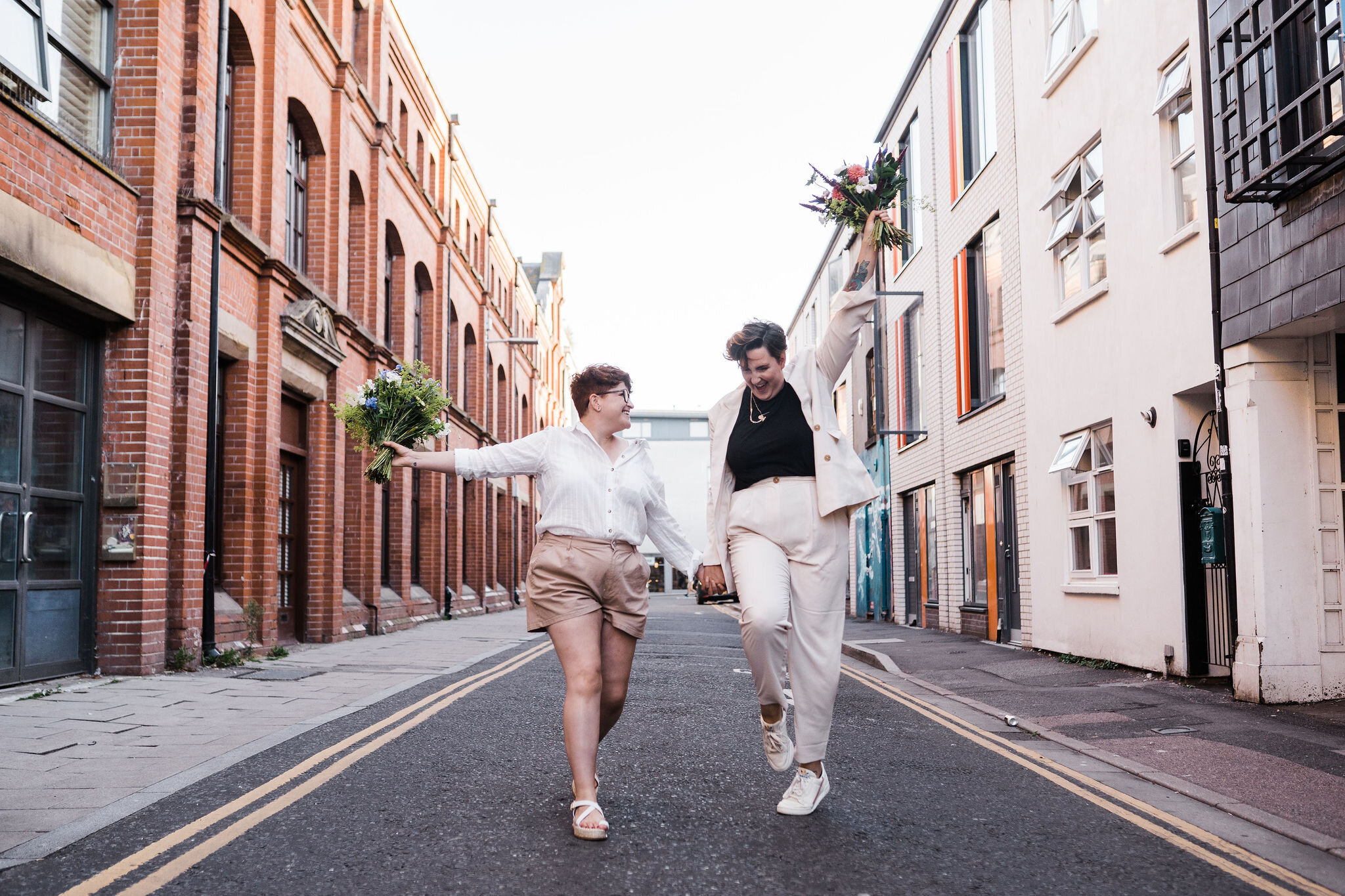How to be an LGBTQ+ inclusive wedding photographer | Wedding Photographer Brighton
LGBTQ+ Wedding Photographer
How to be more LGBTQ+ inclusive with your content, the right way.
What an extra special blog I have for you here! In summer, myself, Steph and Robyne from @r.s_couple met at Brighton bandstand for some fun city elopement shots.
Steph is a successful photographer in her own right @stephaniedreamsphotography, and along with her partner Robynne have recently created Love For All LGBTQ+ Workshops with Hire Societies to help photographers understand the LGBTQ+ wedding experience and create some beautiful, inclusive content too!
I wanted this blog to be educational and helpful; as a straight cis woman, it felt wrong for me to write something, so I asked Steph to help me out…
Steph, can you tell me abit about your experiences as an LBGTQ+ person when looking at the wedding industry?
I think until I came out, I honestly didn’t see how lacking the visibility of LGBTQ+ community was in the wedding industry.
I think this also came from a lot of the BLM movement earlier in the year, when I realised I had a lot to learn. There’s a difference between being racist (or homophobic etc) than being anti-racist. This really made me want to step up my ideas and just opened my eyes into the lack of representation we see in the wedding industry.
What are your three top tips for wedding suppliers who need to become more inclusive in their portfolio or supplier list?
1 - Share what you want to shoot, so go out and give your services for free/discounted to the LGBTQ+ community.
2- Educate yourself. There’s lots of things out there that can help. Equality Weddings has an amazing language guide, and then there’s things like our workshop!
3- Follow people within the LGBTQ+ community, they’ll share things and you’ll pick up on things. You can celebrate or share things that they do, and you’ll just feel like you’re more aware and knowledgable.
What’s the biggest mistake wedding photographers make when looking to be inclusive with their work?
Using hetero people in LGBTQ+ shoots. It’s so wrong. There’s no need for it and honestly it’s so harmful.
But also I think a big one is that if you’re asked a question or picked up on something that isn’t right, learn from it. Take it in to account and do your research. Put your hands up if you’re wrong and actually share your experience on what you’ve learnt and why you’re now doing it another way.
(Side note from Katie: Search on Instagram for LTBTQ+ model couples! Or, do a shoutout/ask a real couple you know to model for you.)
I know you run Love For All wedding workshops with your partner Robynne, and Hire Societies. What do you hope to achieve for the LGBTQ+ community, and non-LGBTQ+ photographers with your workshops?
I think education and representation. I believe that “we” as a whole human race don’t ask questions because we don’t want to offend people, but then because of that, we don’t know or involve ourselves into different minorities. Having a really open space that people could ask and not feel silly or like they shouldn’t ask, but they want to learn was important.
Any final words of wisdom?
We don’t see enough LGBTQ+ representation in any media, but the wedding industry is particularly bad. So our workshop in particular was about showing that you can get fucking awesome, gorgeous model couples from the community, and put that into a awesome shoot to showcase that love really is love.
Thank you so much to Steph for her honesty and wise words, to Steph and Robynne for being such kick-ass models for me this summer in Brighton. Flowers by Hire Societies xx
PS, one last little note from me, whoever you love, you are both welcome here.
Thank you for reading xx






